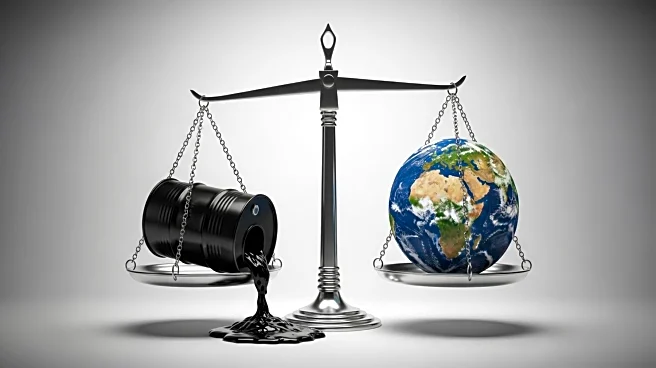What is the story about?
What's Happening?
A federal judge recently dismissed a lawsuit filed by 16 municipalities in Puerto Rico against the fossil fuel industry, seeking accountability for the climate-related destruction caused by Hurricane Maria. The case, Municipality of Bayamon v. Exxon, alleged antitrust violations by oil companies, claiming they suppressed competition and hindered the clean energy transition. The dismissal was based on the statute of limitations, as Hurricane Maria occurred in 2017 and the case was filed in 2022. Despite the setback, the antitrust angle presents a novel legal approach to addressing climate change denial and the fossil fuel industry's strategies to maintain market dominance.
Why It's Important?
The case underscores the potential of antitrust laws to challenge the fossil fuel industry's practices that may obstruct the transition to clean energy. By framing climate change denial as an antitrust issue, plaintiffs aim to hold oil companies accountable for collusive actions that prevent renewable energy development. This approach could pave the way for future legal actions, influencing how climate-related cases are argued in court. The outcome may impact the industry's regulatory environment and encourage more aggressive pursuit of clean energy solutions.
What's Next?
The municipalities plan to appeal the dismissal, keeping the antitrust argument alive in the legal discourse. Future cases may be filed within the statute of limitations, potentially succeeding in holding the fossil fuel industry accountable. Legal experts and environmental advocates will likely monitor these developments, assessing the effectiveness of antitrust claims in advancing climate action. The case could inspire similar lawsuits, prompting oil companies to reconsider their strategies and accelerate the shift towards sustainable energy.















